POWER OF SPORT
How Role Models Football Club serves as a socioeconomic tool to transform the future of young men
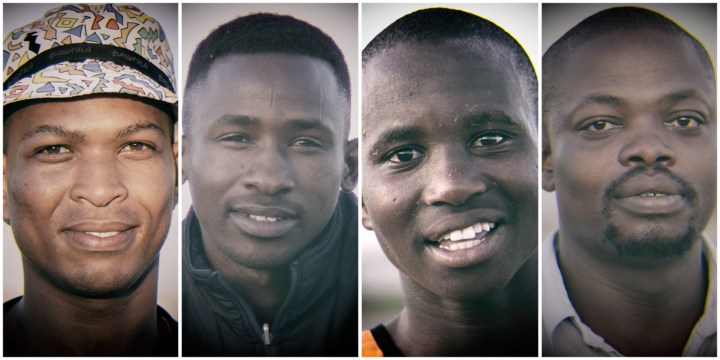
The Beautiful Game is being used as a tool to change Khayelitsha’s culture of rape, killings and gangsterism.
It was Milisa Tofu’s dream to be a captain. Now, at a football club based in Khayelitsha, he is getting his chance.
The activists who founded the club, fittingly called Role Models FC, said there was an urgent need to have a platform to discuss important issues such as gender-based violence and mental health, and football was a great way to get young people together. The club, founded in the midst of the Covid-19 pandemic, works with all age groups and has about 100 players attending practice and games.
Mass shootings, extortion and gangsterism aare everyday problems facing those living in Khayelitsha, about 30km from the Cape Town city centre. But Role Models FC is trying to change that – one step at a time. Provincial crime statistics released last month highlighted these as some of the issues that those living in Khayelitsha, about 30 km from the Cape Town CBD, face on a daily basis.
The idea for the team was sparked by a social media post about rape culture from Axolile Notywala, an activist and community leader in Khayelitsha. He said the post got a lot of reaction and backlash.
Notywala, the coach of the senior side, said this led to conversations about gender-based violence, rape culture and toxic masculinity: “We started talking about all those issues – the role that men play in terms of perpetuating but also the role that men don’t play in terms of being able to stop others or stop themselves.”
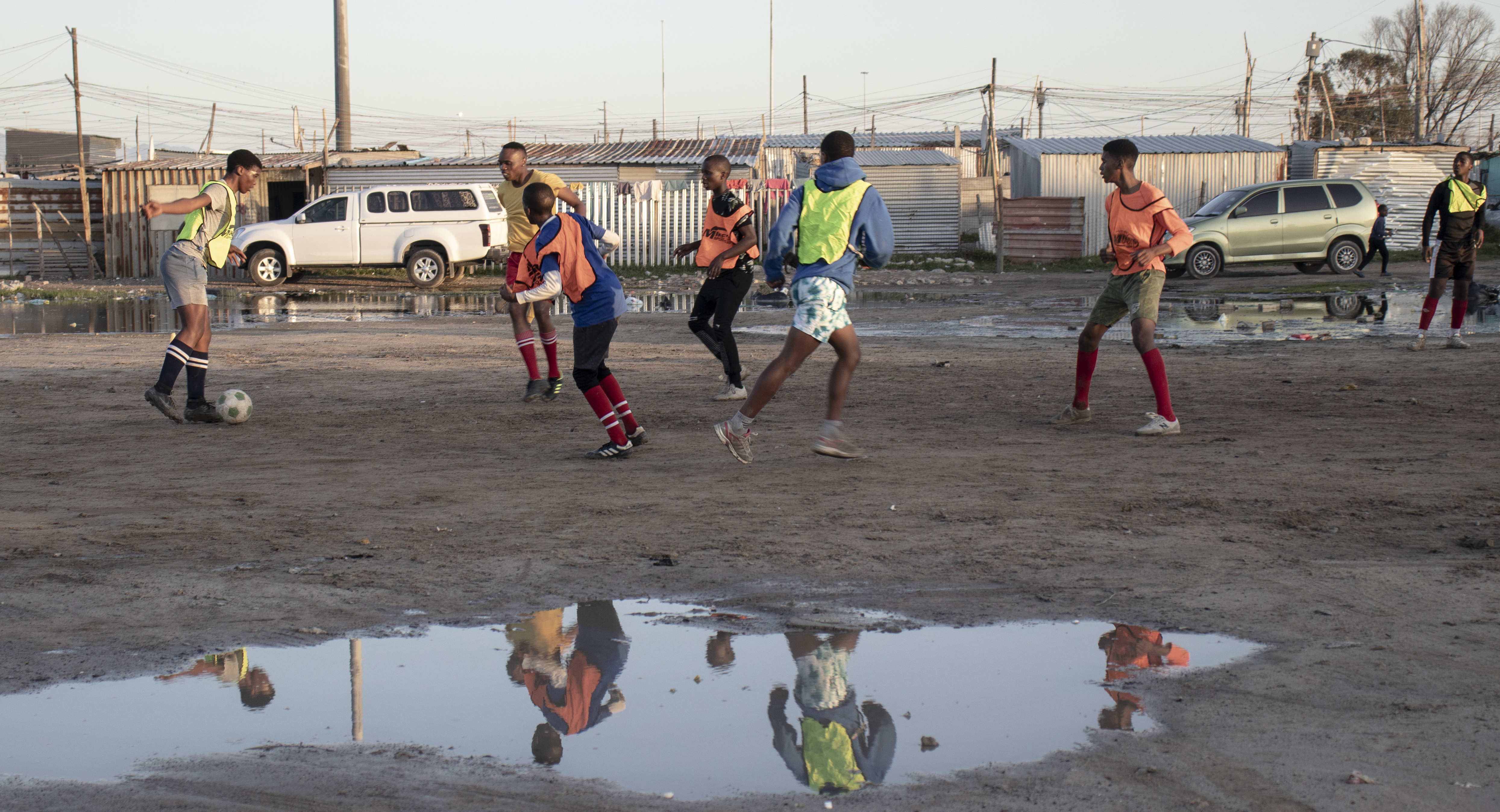
A Role Models FC practice session in Green Point, Khayelitsha. The bare piece of land has always been used as a makeshift soccer field. (Photo: Leila Dougan)
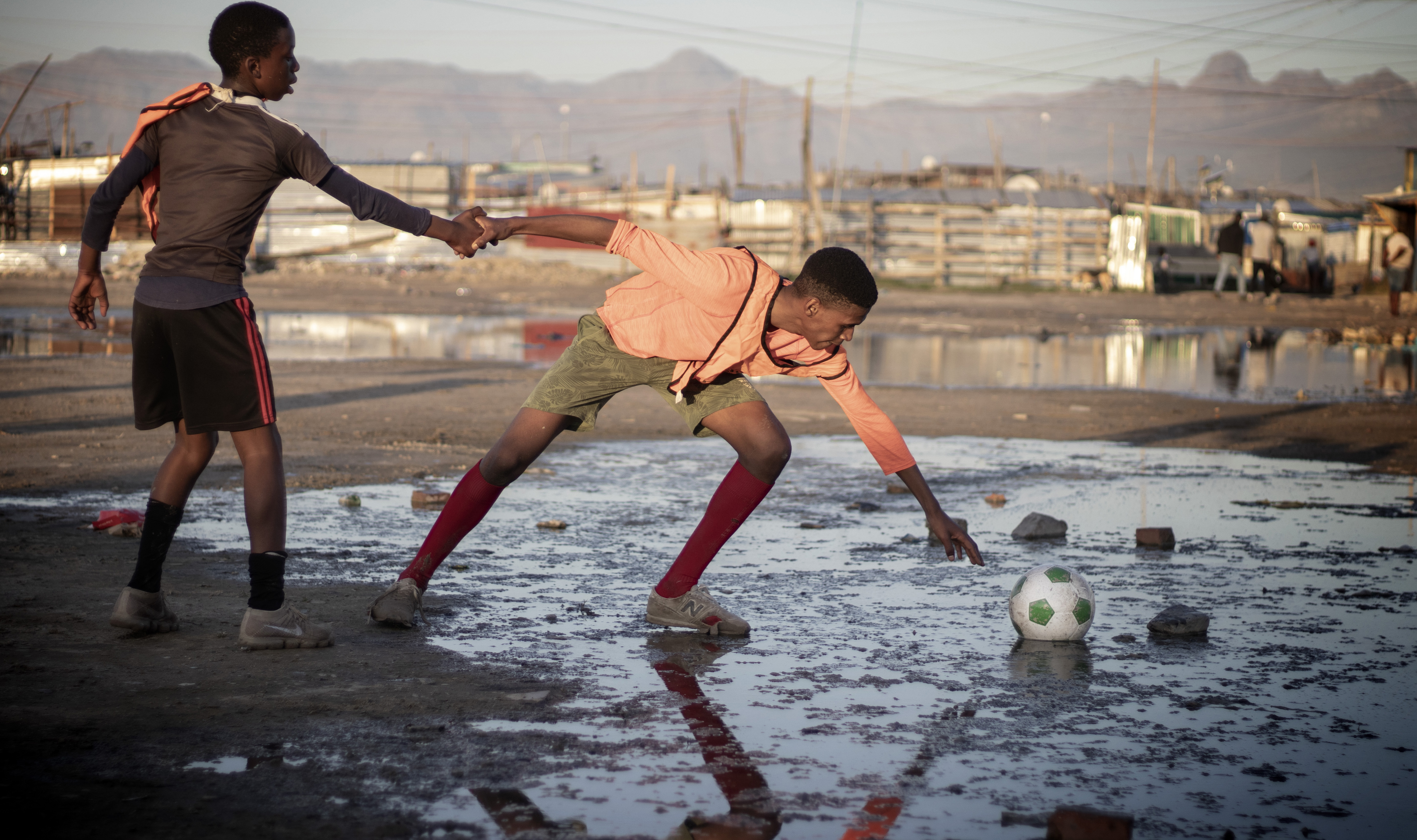
A player picks the soccer ball out of a puddle of water during a practice session. Players say it is unhygienic as the water carries diseases. (Photo: Leila Dougan)
Creating a safe space
Role Models FC came about as a way to create a safe space for such discussions and for young men to be vulnerable. Notywala said the idea of the team was for the players to see themselves as role models.
“We don’t really have positive role models in our community,” he said. “We know some of our players see professional players as role models. But those are people that are far away. Sometimes even those role models behave in ways that we see as problematic.”
Notywala, former head of the Social Justice Coalition, said it was encouraging to see some of the behaviour changes already taking place in the team.
One example was during a discussion about a case of gender-based violence that was in the news. Someone, who was not part of the team, had implied that the victim was to blame. The players who were there challenged him on his comments.
“It gives a sense that they are learning but they are also unlearning a lot of things. That’s something that we talk about a lot in the team. We need to unlearn certain behaviours,” Notywala said.
“Since we began playing, [we have found that] a lot of the players have had anger issues and still have anger issues. We would see in practice how they would react and how they would shout at each other. That has completely changed. There are still one or two incidents but the majority of their behaviour has changed.”
Notywala said it was also encouraging to see other players wanting to come and play in the team.
“There’s a sense of community where we don’t just end up at the soccer field. We are exposing these people to other things. The more we have conversations the more we realise what some of the challenges are… We realised that a lot of them suffer from mental health issues, whether stress or depression,” he said.
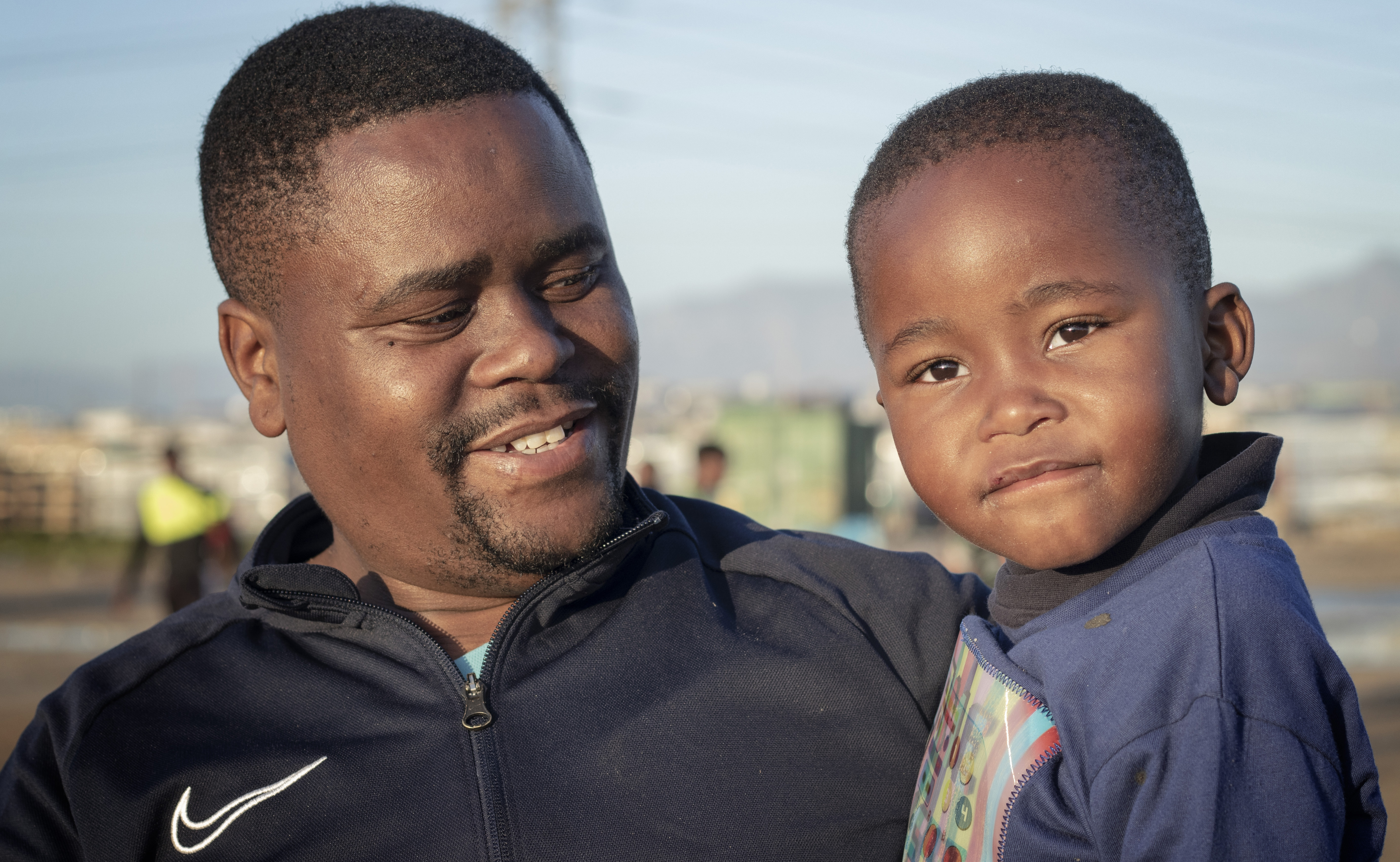
Role Models FC coach Phumlani Mhlaba with his son Lunje, who he hopes will be a striker one day. (Photo: Leila Dougan)
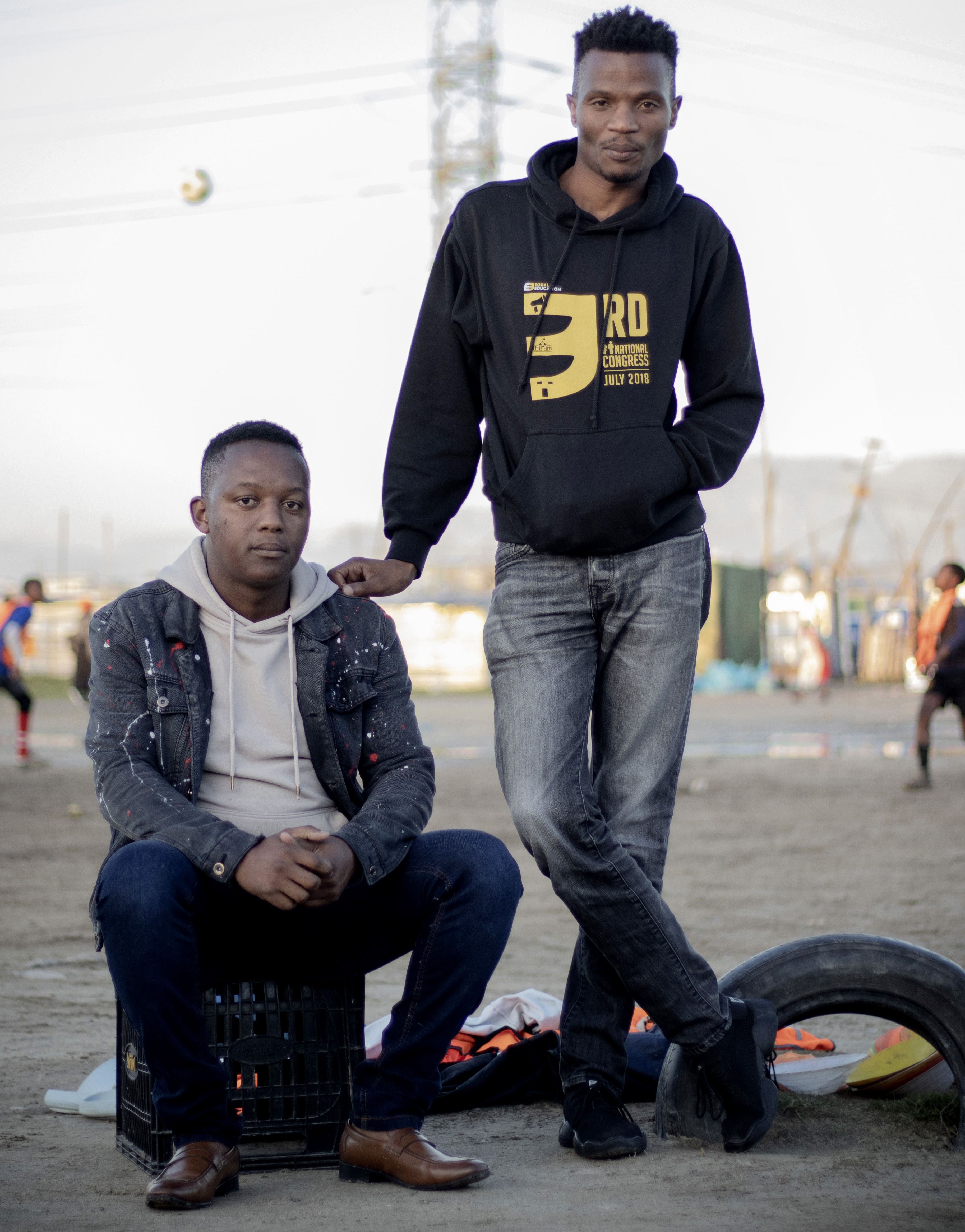
Nkosikhona Swaartbooi and Axolile Notywala are the activists who came up with the concept of Role Models FC. (Photo: Leila Dougan)
Visit Daily Maverick’s home page for more news, analysis and investigations
Carrying a lot of trauma
Nkosikhona Swartbooi, an organiser of the team, said experience in movement-building and activism had helped in the creation of the team.
“We saw, when we organised social movements, that when we had a sports day the whole community would come out, particularly the young people,” Swartbooi said. “We thought maybe this is how we can organise people in our communities.”
He added that, from early on, the players had shown an eagerness to have difficult discussions. “They were ready to have these conversations; they were ready to tap into politics; they were ready to address issues that they were affected by,” he said.
“We realised that we are carrying a lot of trauma. Sometimes people just need a space to talk about the issues that they have. Sometimes that’s enough.”
He said that a camp at an activist retreat at Boschendal in Franschhoek in 2020 had carried the team to where it is today.
“For the first time, [the players] were acknowledging their traumas. People were comfortable to be vulnerable and unpack their traumas – which then drew these players into the team and cemented an identity that ‘I am a role model, in spite of everything that I’ve experienced in my life – there is a possibility that I can turn my life around’.”
He called for support in getting professionals to help with mental health issues. He also said the team needed sports equipment and proper recreational facilities.
“This is something close to my heart. My nephew drowned in a drain because there are no safe spaces for kids to play,” he said.
“Where must kids play if there are no facilities? They will play on the road.”
The team is not only doing good things off the pitch but on it as well. Last year, in their first full season, they won the premier division amateur league in the Greater Blue Downs Local Football Association. The senior team, now in its second season, is sitting third on the log.
The piece of land where they practise is in an area called Green Point in Khayelitsha, where most of the players live. It lies between formal housing and an informal settlement.
It has no grass and gets flooded when it rains. But it’s the only place they can practise. The team has been calling for better fields so that community initiatives like theirs can use them.
When the Daily Maverick team visited the field for a Wednesday evening practice, there were still puddles of water on the pitch even though it had not rained for a few days. The players claimed that the field only got levelled last year before an ANC political event was held there.
Phumlani Mhlaba, coach of the under-16s and under-18s, said the team was not only about playing football but changing lives as well: “We are looking forward to seeing what they can achieve.”
“If I can see one or two [players] from each division make it to professional football, that will be a big achievement. Not only for me as a coach but for role models in our community.
“That’s what we are hoping to see in the future – these guys becoming greater men than what we used to admire as good men.” DM168
This story first appeared in our weekly Daily Maverick 168 newspaper, which is available countrywide for R25.

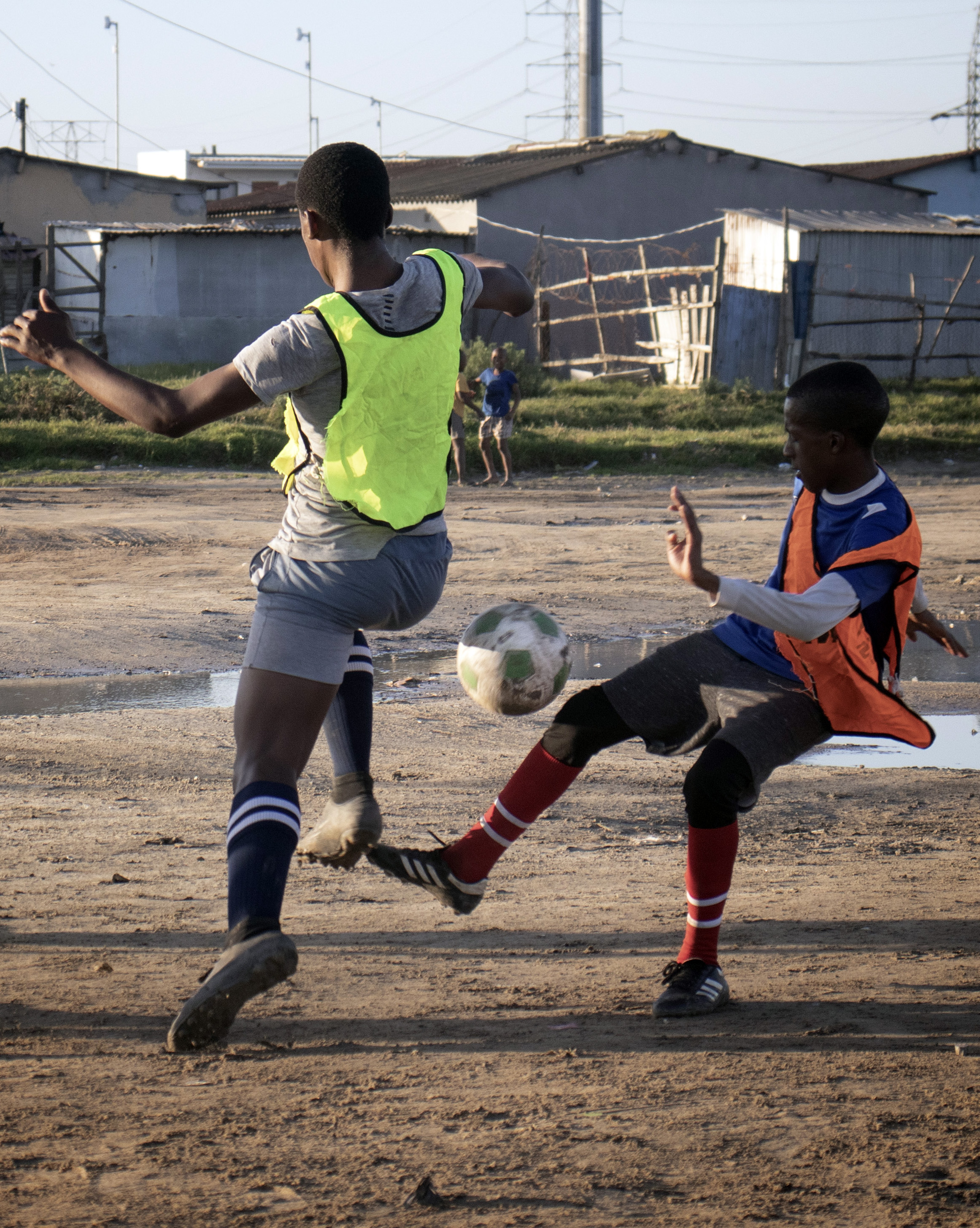
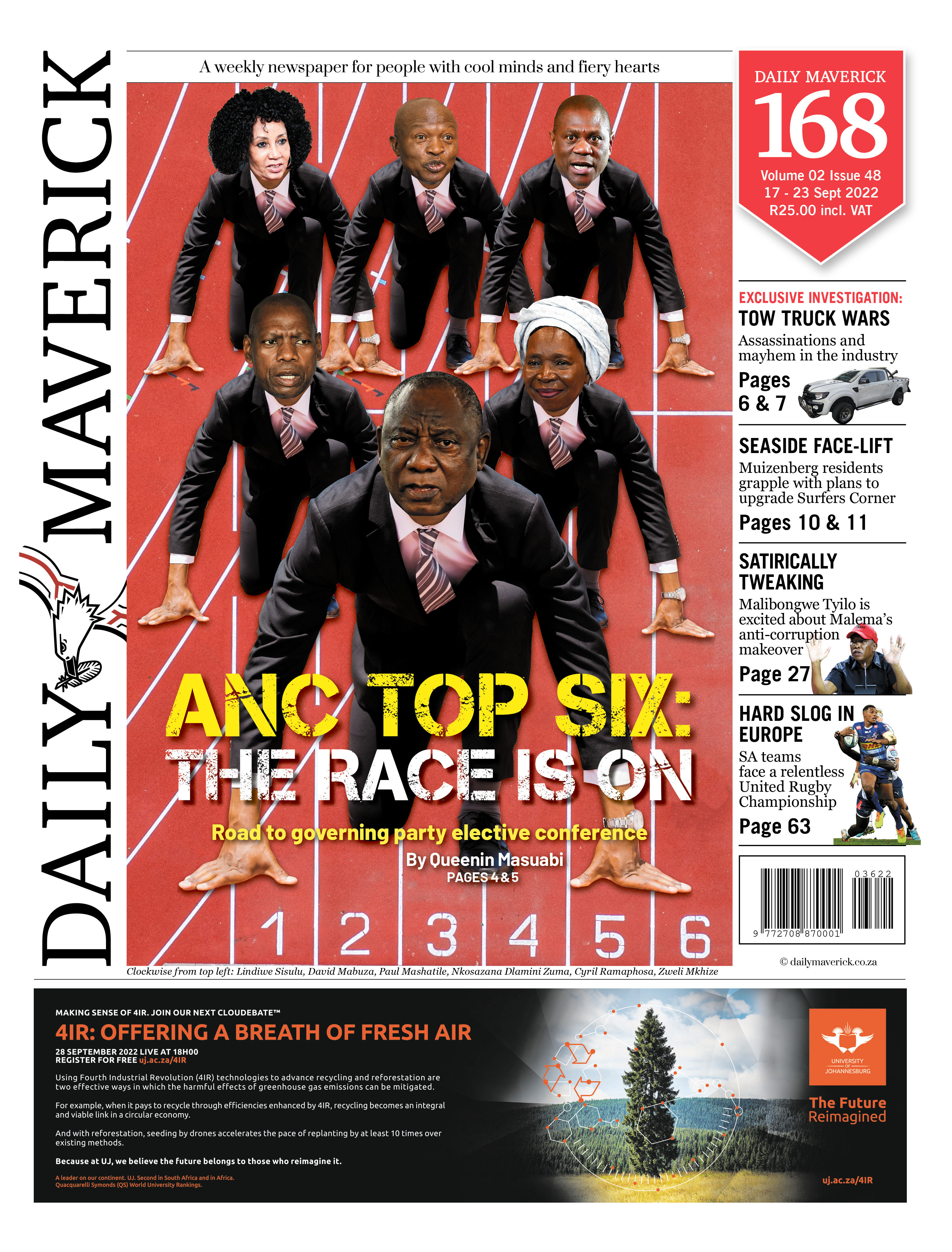






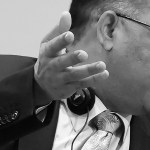










 Become an Insider
Become an Insider
Comments - Please login in order to comment.